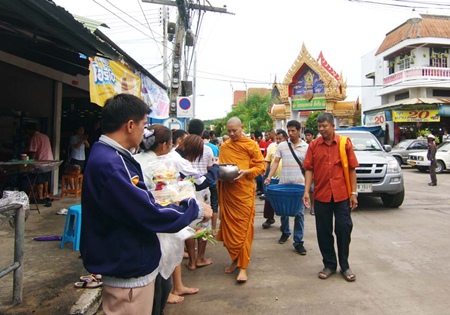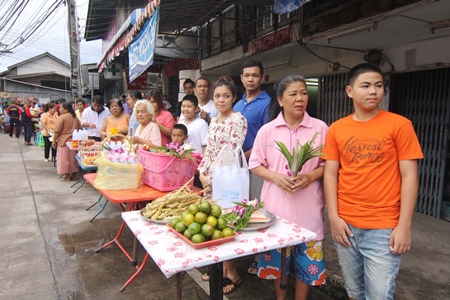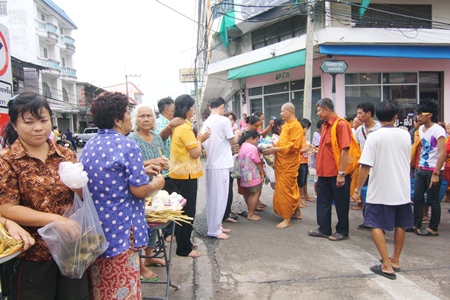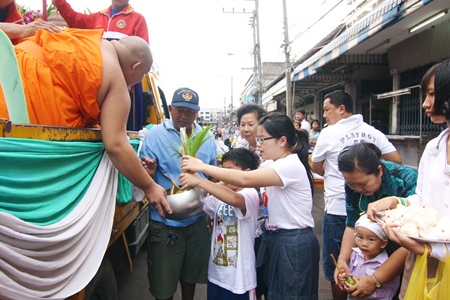Sattahip Buddhists marked the end of three months of Buddhist Lent with merit making ceremonies and re-enactments of Lord Buddha’s return to earth from heaven.
Government officials and residents participated in the traditional Tak Bat Devo ceremony. Sattahip Temple Abbot Wibulthummabaan led 51 monks and three novices in a parade at Sattahip Temple while other area worshippers prepared 30,000 servings of sticky rice in banana leaves as alms to give 50 monks who re-enacted Buddha’s return by descending from the hill-top temple of Khao Baisri.
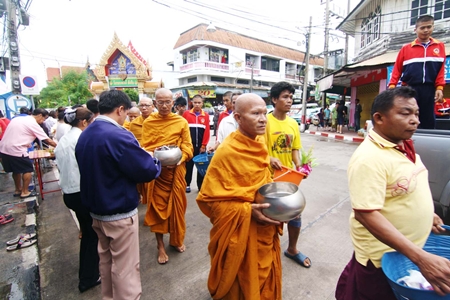 Sattahip residents celebrate the end of Buddhist Lent with a traditional Tak Bat Devo ceremony.
Sattahip residents celebrate the end of Buddhist Lent with a traditional Tak Bat Devo ceremony.
Using ingredients donated by the community, more than 50 people took two days to prepare the kow tom mud, which temple-goers substituted for the traditional, but more expensive, kow tom luk yoni, or sticky rice with coconut leaves. Legend holds that the coconut leaves, which are heavier, allowed followers who couldn’t get close to Buddha upon his return to throw their offerings accurately into his bowl.
More 3,000 worshippers bought the kow tom mud, which supposedly is also tastier than the traditional recipe, to make merit during the Oct. 13 celebration by placing the offerings of in the monks bat, or bowl.
Tak Bat Devo, derived from the Sanskrit word “Devorohana,” is celebrated at the same time as Auk Pansaa, the end of Buddhist Lent. Almost always centered around a temple on a hillside, monks who’ve been in their rains retreat for three months emerged in a procession of golden gowns down the hill depicting the path Buddha took down a celestial stairway made of silver, gold and crystal.
According to ancient tales, Buddha returned to his home in Kapilavastu seven years after achieving Nirvana and becoming the Enlightened One. At the start of Lent that year, in remembrance of his mother, Buddha ascended to the heavens to deliver a sermon to his mother. There he resided for three months.
On the first day of the waxing moon of the eleventh lunar month – Oct. 12 this year – Buddha returned to throngs of angels, disciples and followers who received him with offerings of food and other sacred items. Followers repeated his return in following years during a ceremony that has come to represent the Buddhist belief in reincarnation as much as its historical significance.
